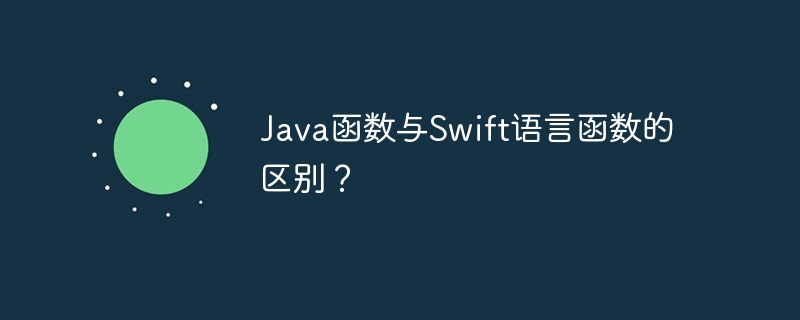
The main differences between Java and Swift functions are: syntax, type system, return values, modifiers, and parameter type specification.

The difference between Java functions and Swift functions
1. Syntax
public static void main(String[] args)
func main() 2. Type system
3. Return value
void. Void. 4. Modifiers
public,static and void are keywords used to modify the behavior of a function. public, static, final and other modifiers are optional and can be added to specify functions properties. 5. Parameters
Practical case
Java function:
public class Main {
public static void main(String[] args) {
System.out.println("Hello, world!");
}
}Swift function:
func main() {
print("Hello, world!")
}Both functions implement the same functionality, but have slightly different syntax and language features. Java requires explicit declaration of types and return values, while Swift can use type inference and optional modifiers.
The above is the detailed content of What is the difference between Java functions and Swift language functions?. For more information, please follow other related articles on the PHP Chinese website!
